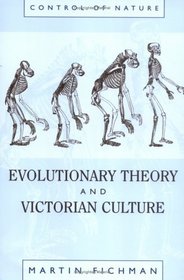Search -
Evolutionary Theory and Victorian Culture (Control of Nature)
Evolutionary Theory and Victorian Culture - Control of Nature
Author:
Although Charles Darwin was a central figure in the nineteenth-century development of evolutionary theory, we often tend to overlook the crucial role played by other leading thinkers of the time. For example, Alfred Russel Wallace independently arrived at nearly identical conclusions as Darwin on the origin and evolution of species. Furthermore,... more »
Author:
Although Charles Darwin was a central figure in the nineteenth-century development of evolutionary theory, we often tend to overlook the crucial role played by other leading thinkers of the time. For example, Alfred Russel Wallace independently arrived at nearly identical conclusions as Darwin on the origin and evolution of species. Furthermore,... more »
ISBN-13: 9781591020035
ISBN-10: 1591020034
Publication Date: 11/2002
Pages: 256
Rating: ?
ISBN-10: 1591020034
Publication Date: 11/2002
Pages: 256
Rating: ?
0 stars, based on 0 rating
Genres:
- Science & Math >> Evolution >> General
- Science & Math >> History & Philosophy >> History of Science
- Science & Math >> Mathematics >> History
- Science & Math >> Essays & Commentary
- Engineering & Transportation >> Professional Science >> Evolution >> General




